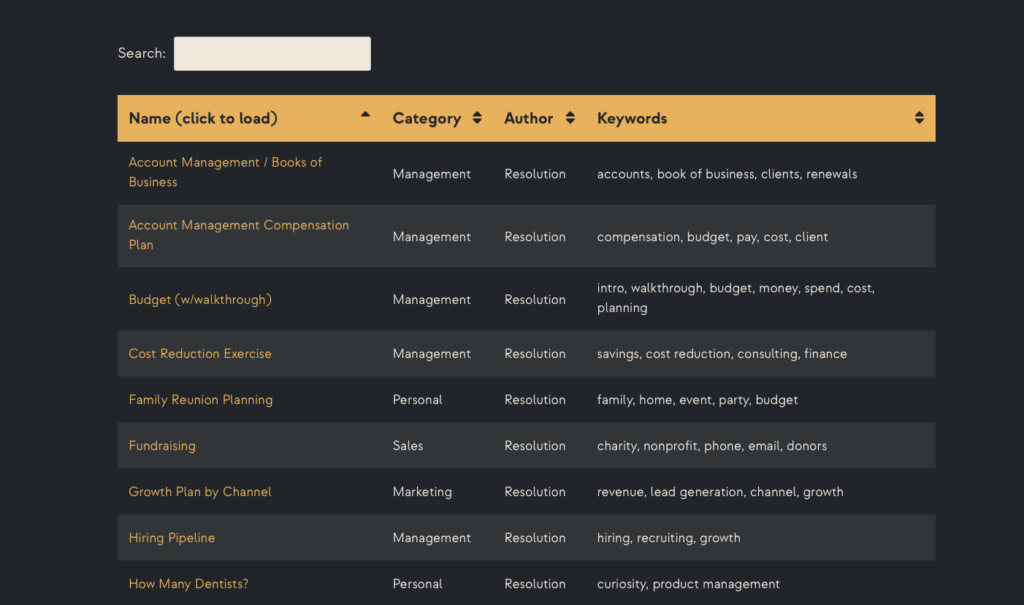the perfect spreadsheet alternative companion accessory replacement improvement starting point
Every day, millions of non-expert spreadsheet users fire up Excel, or Sheets, or something similar and prepare for a stressful couple of hours poking at cells and formulas because there’s really no such thing as a spreadsheet alternative.
Why? Because spreadsheets are incredibly powerful, and incredibly flexible. But… that also makes them a pain in the butt when it comes to answering life’s everyday small questions the way we often need them answered.
Here are things you don’t have to deal with when you find your answers in an actual spreadsheet alternative like Resolution.
Even if you think you built a pretty snazzy spreadsheet, it’s likely that your colleagues have a different opinion.
1. No formulas to figure out/screw up
Lots of us know the basic idea of how spreadsheet formulas work. But even simple stuff gets done incorrectly all the time. Ever put the wrong thing in parenthesis? Ever forget to update all your individual “divide the answer by three” formulas when you add a fourth thing?
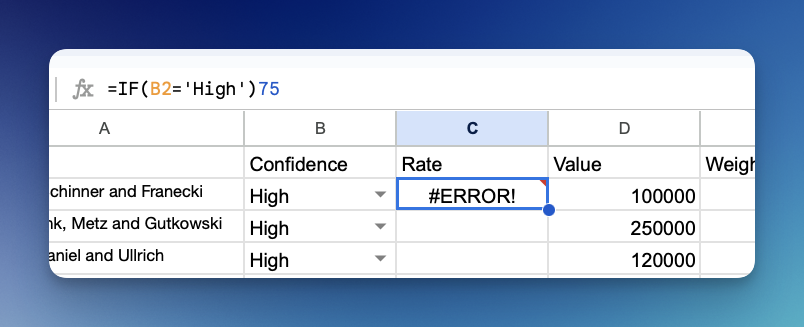
We’ve all been there. Some of us reach that “next level” of formula building where this stuff becomes second nature, but most of us don’t, whether we admit it or not.
2. No cells to find & remember
The most annoying thing about cells is that they don’t mean anything. B5? AA12? It’s only called that because it just so happens to sit there on the screen. And when you’re fixing one of the aforementioned broken formulas, who wants to be tracing your finger around the screen trying to figure out whether you should be dividing C5 by C12 or the other way around?

Ahhh yes, good old L36. Who could forget L36? Or was that K36?
3. No "#REF" or other weird errors
A spreadsheet with formulas in it is like the game “Jenga”. You can pull out any block you want, any way you want, but most of the time your giant tower is going to fall apart. Your spreadsheet will try to do the math anyways, and when it can’t, it’ll just say something like “#REF”, or “circular dependency detected”, and you get to figure out the rest.
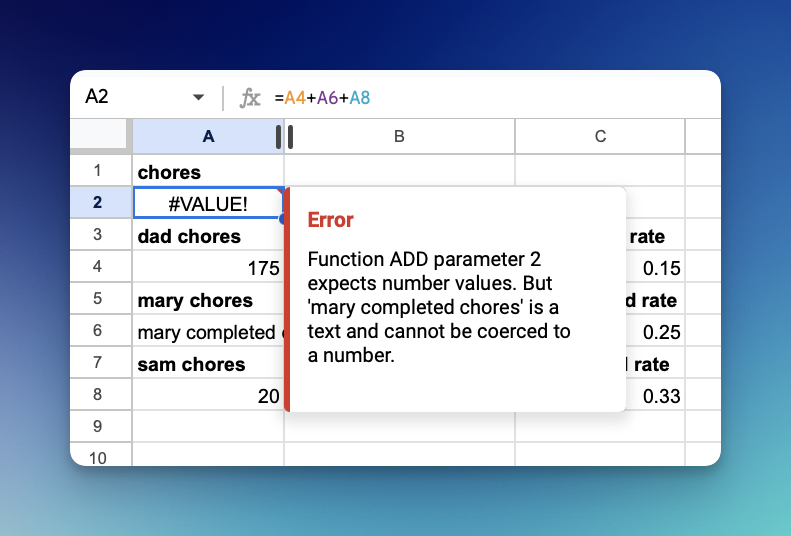
It’s “a text”, I tell you! And no amount of coercing is good to make it anything but “a text”!
For really complicated models you know extremely well, this kind of flexibility can be worth the cost of confusion. But normal math questions aren’t this complicated, and it would be a lot better for most of us if our spreadsheet said “uhh… maybe don’t change that part right now”, or better yet, just had a better answer than “#VALUE!”
4. No hidden assumptions
Ever try to track down what’s going on when a number doesn’t seem right? There are a bunch of cell names, maybe some parenthesis, or even a function. But worst of all is random math — maybe your formula multiplies the number of customers by 0.12, or maybe the number of site visitors is automatically reduced to 90%. Why? Who knows!
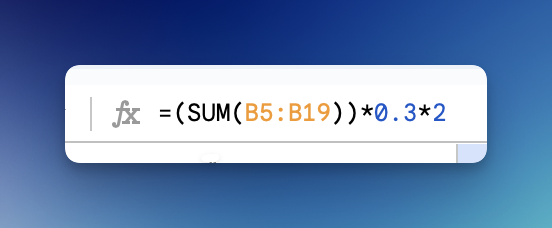
What’s up with 0.3? and 2? And why that order?
5. No constant rebuilding
One of the most frustrating aspects of answering a question with a spreadsheet is that you need to know the question before you set it up. If you don’t, or even if you do but the question changes, you often have to re-engineer the entire thing so different things point to values, and different things point to formulas. Otherwise, everything will break.
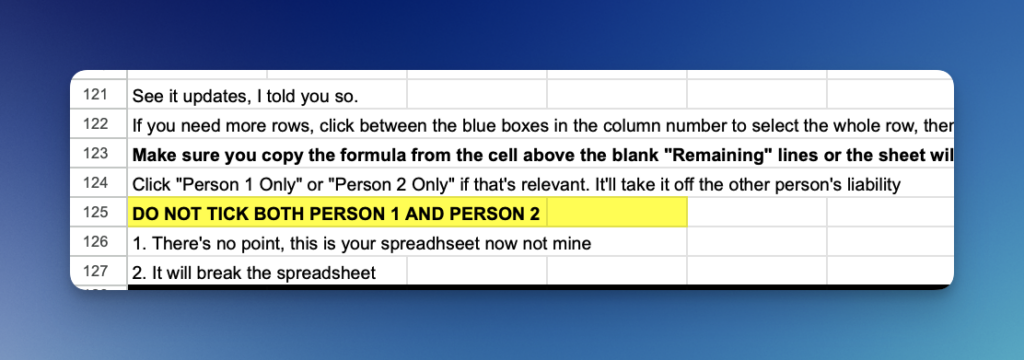
First rule of my spreadsheet… please consult the other 78 rules of my spreadsheet.
In addition, simple questions often can’t be answered by simple spreadsheets. If you have a value of “500” that is a combination of 10 different things, and you want to know what those things would be if the value was “400”… there’s no way to know! You’ll need to build a totally different (very complicated) spreadsheet to figure it out, or change all those little values one at a time until you get close enough to “400”.
Relax, we'll explain everything.
Sure, people might think you’re nuts for solving spreadsheet problems without a spreadsheet. But seriously, all these horrible problems are avoidable. If you’re still not convinced, check out all these useful videos on what’s wrong with most spreadsheets, and how to solve it with Resolution.
What's a "basic math scenario?"
Budgets, funnels, processes, plans… many of them require a complex spreadsheet, but aren’t actually that complex.
Check out tons of 100% free-to-use examples in the Resolution Model Index.

